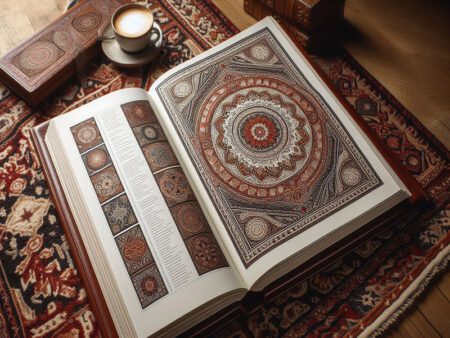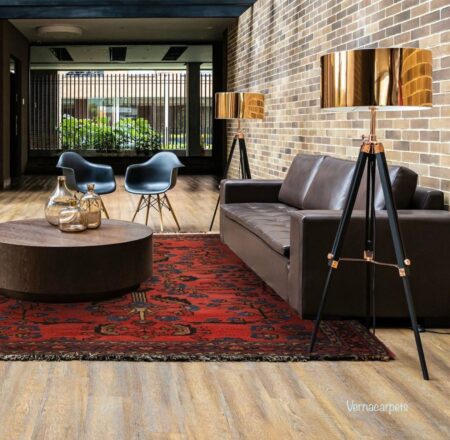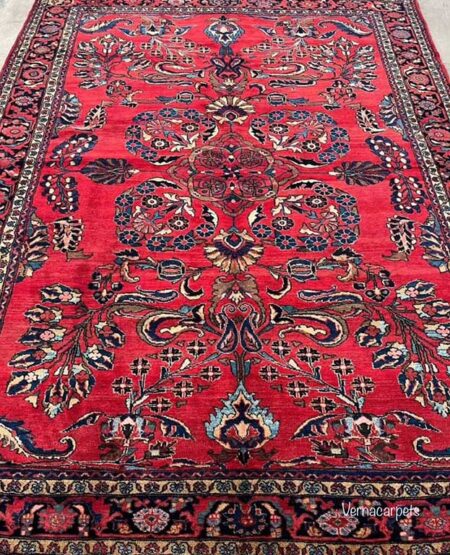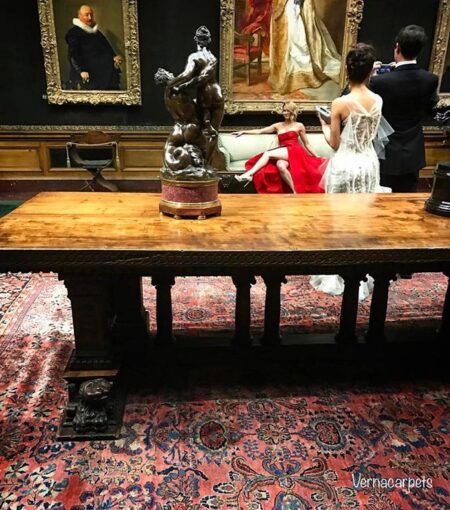
VERNA CARPET – Redesign by Parsineweb





Showing all 12 results
Lilian is a village in Arak Province, whose carpets are famous all over the world, especially in America. A number of Armenian immigrants who were moved from the north-west to the central regions of Iran by the order of Shah Abbas I settled in the village of Lilian. The people of Lilian had many skills, including agriculture and rug weaving. They traditionally spun the wool of their sheep and dyed it with natural dyes in a special way, then weaved carpets with them. If you would like to buy a Lilian(Lilihan) rug, we recommend that you familiarize yourself with its features.

Vegetable dye antique Lilian area rug

Lilian rug
Carpet weavers used natural colors found in nature to dye Lilian rugs. People of Lilian used special techniques to dye their wool. The dyers of this village first dyed the wool with root of madder, then put it in old grape wine. This would make the wool brighter and shinier. They put the red wool obtained from madder in doogh, and due to the combination with the lactic acid in the doogh, the red color turned pink. The rest of the colors were prepared from the leaves of the grape tree and walnut shell and Bengal indigo.
You can read this article: How to Protect the Roots of the Rug?

Lilian rug, museum in New York, The Frick collection
Lilian rugs are among the original Iranian rugs, of which only a limited number of old examples remain. The price of Lilian rugs largely depends on their age and type of weave. Antique Lilian rugs are relatively expensive and have excellent weave. If you love buying Lilian rugs, you can contact the experts at the Vernacarpets online collection.